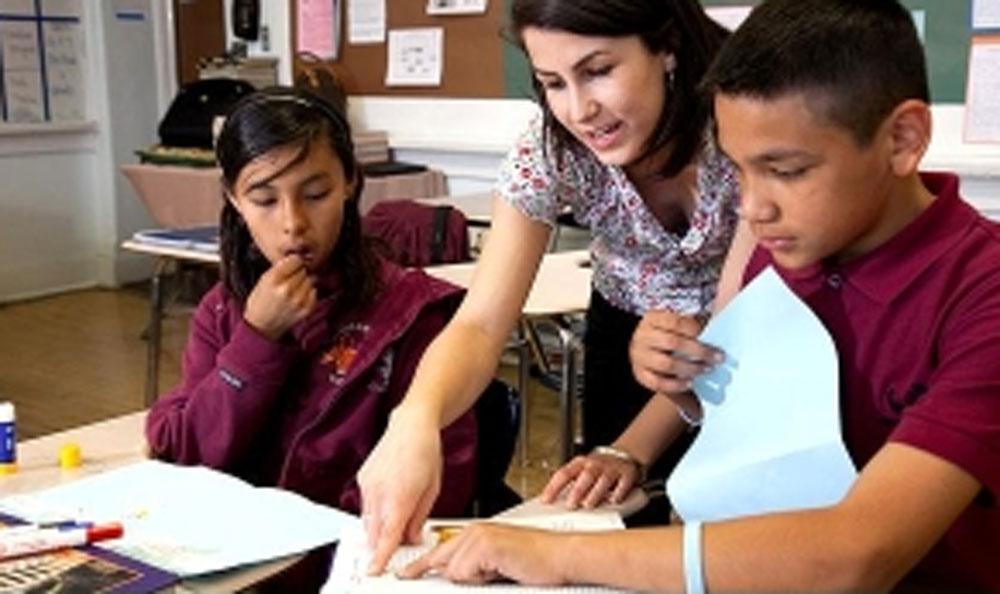Africa-Press – Lesotho. Teaching is one of the most important professions in society and touches every aspect, of every community in the world in some way. I was recently lucky enough to attend the Varkey Foundation’s Global Education and Teaching Forum in Dubai, which culminated in the announcement of the US$1m Global Teacher Prize, which was won by Andria Zafirakou, who teaches art and textiles in north London.
The ten shortlisted teachers from across the globe were announced in a video from Bill Gates and they are all outstanding individuals making a significant difference to the lives of their students and their communities – some of which are in very challenging contexts.
To witness teaching excellence celebrated on such a global platform was really encouraging, inspiring and humbling. But it also got me thinking, is it possible to pinpoint what makes a great teacher? Here are eight traits that I believe help to make the best teachers:
1.They embrace their powers
The best teachers recognise and embrace their potential to have a transformative impact on the wider future of the nation, and beyond. By promoting positive values, including tolerance, understanding and inclusion, this sense of moral purpose is the engine that drives the best teachers.
2.Encourage pupils to shoot for the stars
Good teachers set themselves and their pupils aspirational targets and have belief, confidence and a clear vision of where they are heading – both for the immediate future and the longer term.
Students who have experienced what they consider a “great” teacher will often use the word “inspiring”. Having the opportunity to inspire and be inspired by young people is something all teachers should actively seek – for themselves and their students.
3.Face challenges head on
Great teachers plan how to anticipate, address and learn from challenges – even the most difficult ones. Only by going through this process can a teacher overcome an obstacle, learn from it and continue to move forwards.
In the same way, good teachers also address and challenge any negatives. This is important, because of course, some pupils have negative thoughts about school and their education.
And it is part of a teacher’s development to understand the factors contributing to this. If teachers don’t, then they cannot expect positive change to happen.
4.Know how to listen
Teaching, like other professions, can at times be guilty of navel-gazing and introspection. This can mean those with the most important opinions – the learners and students themselves – can sometimes end up being ignored.
We always ask our student teachers what they think makes a good teacher – most commonly we hear qualities such as making time, enthusiasm and being knowledgeable and supportive. We listen, and we encourage our teachers to listen to their pupils too.
5.A love of learning
Great teachers, in my experience, demonstrate a relentless pursuit of learning for themselves – as well as being deeply fascinated by the learning of others.
This can be engaging in new ideas, building knowledge and developing broader perspectives on an academic and social level. As well as the confidence to admit you can never know it all.
6.They can adapt and overcome
We live in a fast paced world, with teaching often feeling the effects of that relentless pace. An acceptance or acknowledgement of this and the ability to respond to change accordingly makes for a much more effective teacher.
And a great teacher knows every day is different – sometimes exciting, often challenging – but ultimately worthwhile. It’s also important that teachers are able to take an evidence-based approach to how they respond to change. Not all new initiatives are equal and teachers need to be able to critically interrogate them before deciding how to proceed.
7.Are able to connect the dots
The depth and breadth of knowledge and skill needed to be an excellent teacher is often underestimated. Not only do teachers have to have a good understanding of – and ideally passion for – the subject(s) they teach, but they also need to know how to make this accessible and meaningful for their pupils.
To do this they need to understand a complex and massively interrelated range of factors. This includes child development, cognitive science, social, emotional and behavioural sciences and the practical implications of these – in terms of how pupils behave and what they need to succeed and thrive.
They also need to be able to combine these different kinds of knowledge, effortlessly and automatically to make the best decisions on a moment-by-moment basis as learning unfolds. It is not surprising that this can feel exhausting for teachers (but also extremely rewarding) at times.
8.They recognise the privilege
This is not a profession that should be entered lightly, it is not for the fainthearted, or for those who are trying to make a quick fix. It is a privilege to be a teacher, to have the opportunity to impact positively on the lives of so many young people, their families and ultimately their communities.
Teachers get to make a difference to the lives of children and young people – improving their life chances and helping to secure their futures. And in this way, teachers have the most important job of all. Samantha Twiselton Director of Sheffield Institute of Education and Professor of Education, Sheffield Hallam University
For More News And Analysis About Lesotho Follow Africa-Press






